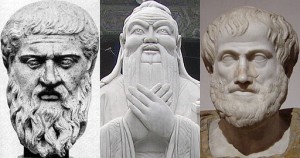What is a Well-rounded Education?
The Head of Eaton College, Tony Little, has stated recently that Britain’s exam system is unimaginative and outdated. He bases this on the current system whereby students sit alone at desks to complete exam papers in silence, and on the fact that it has remained largely unchanged since Victorian times. He says it bears no relation to “a world in which, for much of the time, they [ the students ] will need to work collaboratively.”
Little goes on to say that British schools should not seek to copy China’s academic system because it is wrong, “to confuse league table success with a good education,” and warned, “British children would suffer in the global job market if they were forced into the straightjacket that confines Chinese pupils, rather than receiving a well-rounded education.” In his ideal, a well-rounded education includes putting children through after-school classes and restructuring the school day to enable the conversion of free moments between lessons into one 30-minute “enrichment session,” something encouraged by the Department of Education so that children can work at a higher level. Cringeworthy stuff!
Tony Little says there is merit in “the liberal values of an all-round education, something we have traditionally been good at. A sharp focus on performance is a good thing, but there is a great deal more to an effective and good education than jostling for position in a league table.”
We often hear such remarks, but there seems to be very little reported about what constitutes a well-rounded education. A Lancashire head also in the news recently said that playing a musical instrument, painting a picture or being a good friend were also skills to be valued. It is a curious thing that being a good friend is thought of as being a skill to be learned.
Perhaps it would be better to think in terms of finding a way of being, and thinking that this is the essence of a well-rounded education. Educators do not seem to be able to get away from the idea that education’s aim is to create people who have a skill set that allows them to compete in the global market and that life is about work, especially working collaboratively as according to Tony Little. What our educators fail to grasp is that we need to help people learn to be. This is partly about self-awareness, acceptance, and the ability to be still without thinking, which lacks the more destructive elements of human behaviour in competitiveness, ego and ambition. We need to avoid the continual engagement in endless thought-streams about nothing in particular, which Facebook and constant contact through iPhones encourages. We need to change the mindset which says that working hard and being busy and ‘getting on’ is what life is about. This is the drive to achieve ‘success’ which really equates with having more money to buy and consume more stuff, and ultimately this is not about anything.
There is a need to gain a sense of who we are, in order to live more consciously and compassionately, allowing us to lead a fulfilling life. This does not require endless busyness, nor does it require copious entertainment when not working. When we reach the end of our lives we will not be saying, “I wish I had spent more time at the office or had enjoyed more entertainment”. It would be more normal at such a time to think about who we are, our relationships, and beautiful experiences, not about work and material goods. So why wait until then to think this way?
David Blunkett made some attempt to broaden education by introducing AS Levels, but this meant doing more of the same traditional subjects. Broadening education and making it more well-rounded might perhaps involve studying things such as Meditation and the Buddhist tradition. Ancient History, Herbal Medicine and Philosophy would also promote a sense of who we are.
All this is not a radical way of thinking, rather it is just not in the minds of educators and politicians. However, if they would open up to this and really think about what education should be, and move away at least a little from the work-based global competitiveness theme, we might make some more valuable changes to our education system than the creation of academies, free schools and more rigorous exams. Who knows? Such a well-rounded education system might start producing well-rounded individuals.
